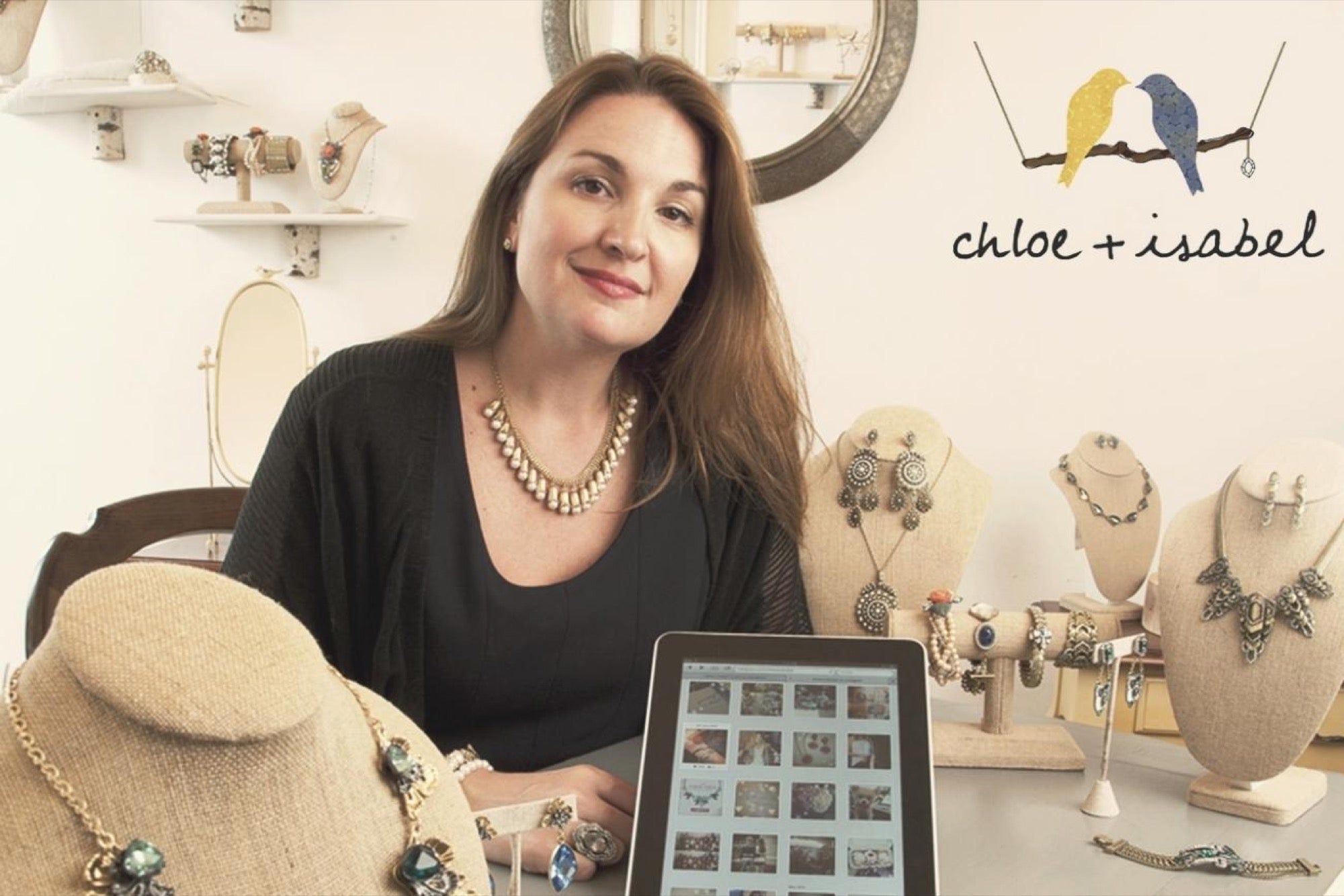Direct Selling Goes Social, Retools for Millennial Generation Chantel Waterbury, founder of jewelry company Chloe and Isabel, talks about why she's putting her brand in the hands of 'social retailers'.
By Sarah Max
Opinions expressed by Entrepreneur contributors are their own.

The summer before her freshman year of college, Chantel Waterbury drove around Northern California selling Cutco cutlery door to door. She didn't realize it at the time, but that experience would have a lasting impact, both on her corporate career and decisions she would make when she launched her own company, Chloe and Isabel, in 2011.
Despite her enviable connections in retail – her résumé includes fashion jewelry buyer at Macy's, director of accessories for Old Navy and vice president of Haskell Jewels overseeing Kenneth Cole jewelry design and merchandising – Waterbury opted to go the direct sales route with her own fashion jewelry brand.
The decision, she says, hinged largely on her desire to do more than just sell jewelry. "My bigger vision was to empower women by giving them an opportunity to make money and learn critical skills they can use elsewhere," says Waterbury.
Today, her New York-based company has roughly 85 corporate employees and a network of more than 5,000 merchandisers who sell Chloe and Isabel goods directly through pop-up stores and their own online stores. Whereas direct selling has tended to skew toward older sellers, 75 percent of Chloe and Isabel merchandisers are under the age of 35..
Entrepreneur chatted with Waterbury about how direct selling has evolved into social retailing.
Related: What Co-Working Spaces Can Teach You About Morale and Engagement
Entrepreneur: Let's start with your stint selling Cutco cutlery. Were you good at it?
Waterbury: Over the course of three months, I sold $33,000 worth of knives, and made enough to pay first my first two years of college. I sold to everyone in that county. The problem is that those knives last forever, so eventually I exhausted my channels. I tried selling vacuum filters, but it was tough since I didn't really believe in the product. Let's just say I didn't sell those to anyone I knew.
Entrepreneur: Fast forward to a few years ago, when you started your own company. You had connections in retail but decided to go the direct sales route. Why?
Waterbury: I knew always I wanted my own company and my own brand, but I didn't know how I would do it. What did know was that when I got to the top of the corporate ladder, something was missing. I didn't feel like I was making a big enough impact. I was really drawn to the fact that the recession was hitting millennials the hardest. When I think of that age, I think direct sales because that's when I did it. I didn't realize until later that direct selling isn't typically considered an opportunity for younger people.
Related: What's Wrong With the Modern Conference Call (and the Man Who's Trying to Fix It)
Entrepreneur: Any other surprises?
Waterbury: Building the brand Chloe and Isabel was the easy part. The hard part was taking this old model of direct sales and revamping it for today. That's why we call it social retail. At the time, I didn't think I was creating a social platform, and I certainly didn't realize that my largest team would be in engineering. But I had a clear vision of how I wanted it to work and what tools I wanted my retailers to have.
Entrepreneur: In that respect, I'm guessing social retailing is more appealing to younger women than hosting Tupperware parties or knocking on doors.
Waterbury: When I sold directly, I was confined to a 30-mile radius. I drove to every single appointment. So, definitely. What hasn't changed is the power of personal connections. If anything, they're stronger today.
Entrepreneur: Why is that?
Waterbury: Increasingly, people look to their social networks to guide their purchases. Merchandisers get so excited the first time they get an order from someone they don't know, but if they dig a little deeper, it's usually someone who knows someone they know.
Entrepreneur: How is this different from selling online via a traditional retailer?
Waterbury: Most retailers are still focusing on the sheer volume of their reviews. When you start to deal with strangers recommending something you want power in numbers. What we're doing is much more personal because everything is ultimately being sold by someone. That said, we've noticed that people want reassurance about the products they're buying. They will come into our forum and ask other people to post a picture of something. They don't want the marketing shots. They want a real image.
Entrepreneur: Is there etiquette for selling via social channels, especially when it's your personal networks? Will there come a point when people will tune out friends selling stuff?
Waterbury: There is always etiquette! At Chloe and Isabel we are not just a fashion brand, but a lifestyle brand. When marketing yourself it is always about adding value to your customers and this applies to our merchandisers as well. We encourage our community to learn a balance of marketing the jewelry as well as marketing their personal brand, which helps to build value for their network for stronger brand affinity.
Correction: An earlier version of this story misstated Waterbury's role with Kenneth Cole Jewelry.












